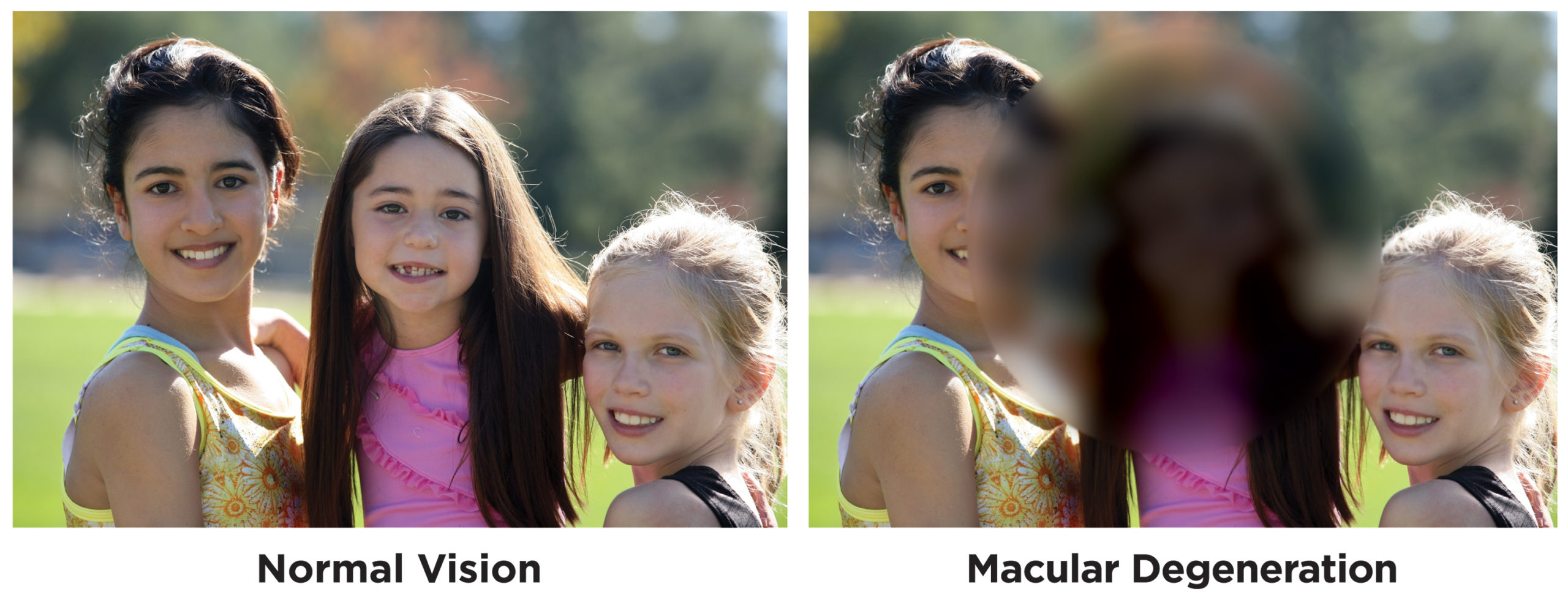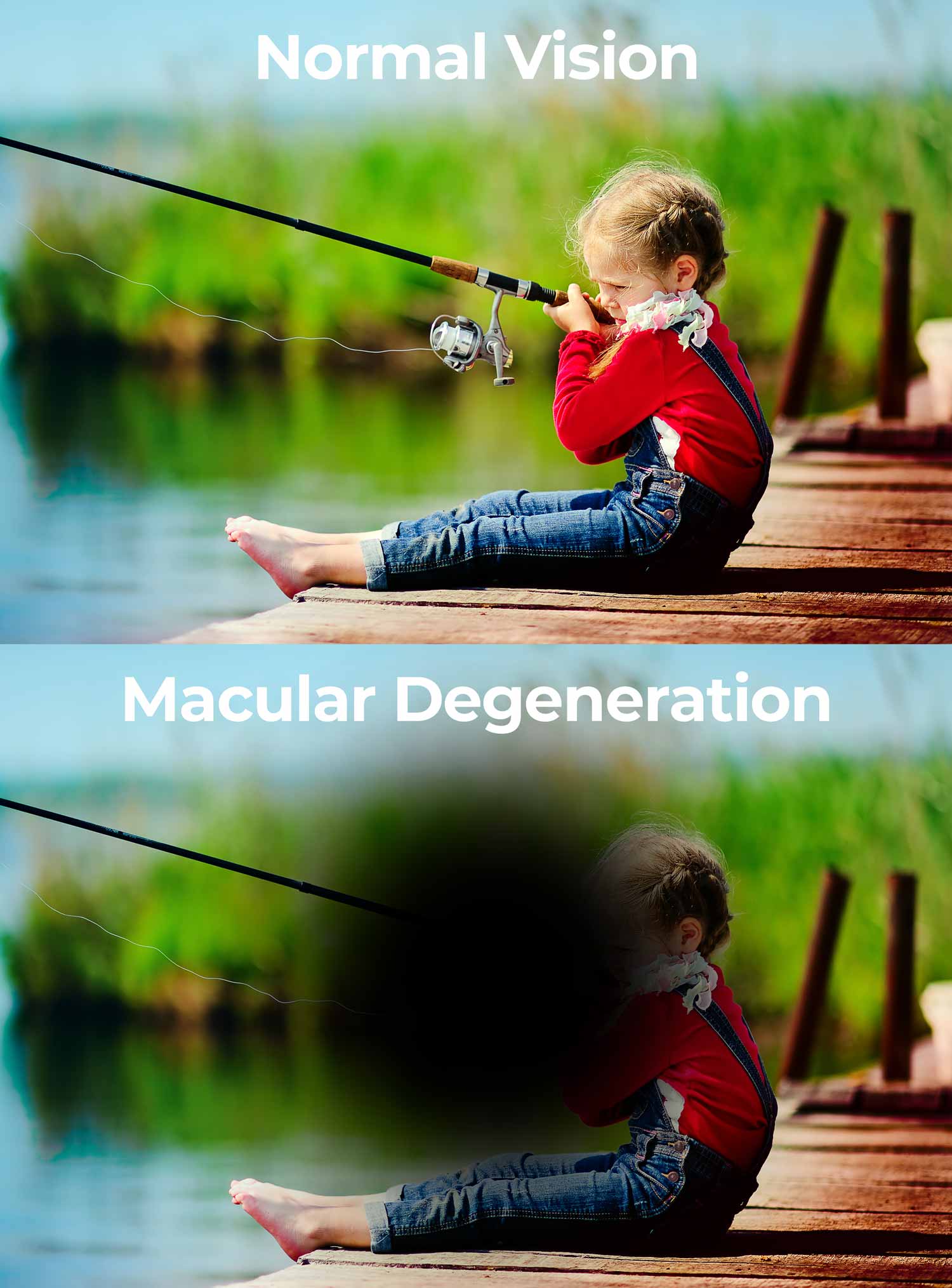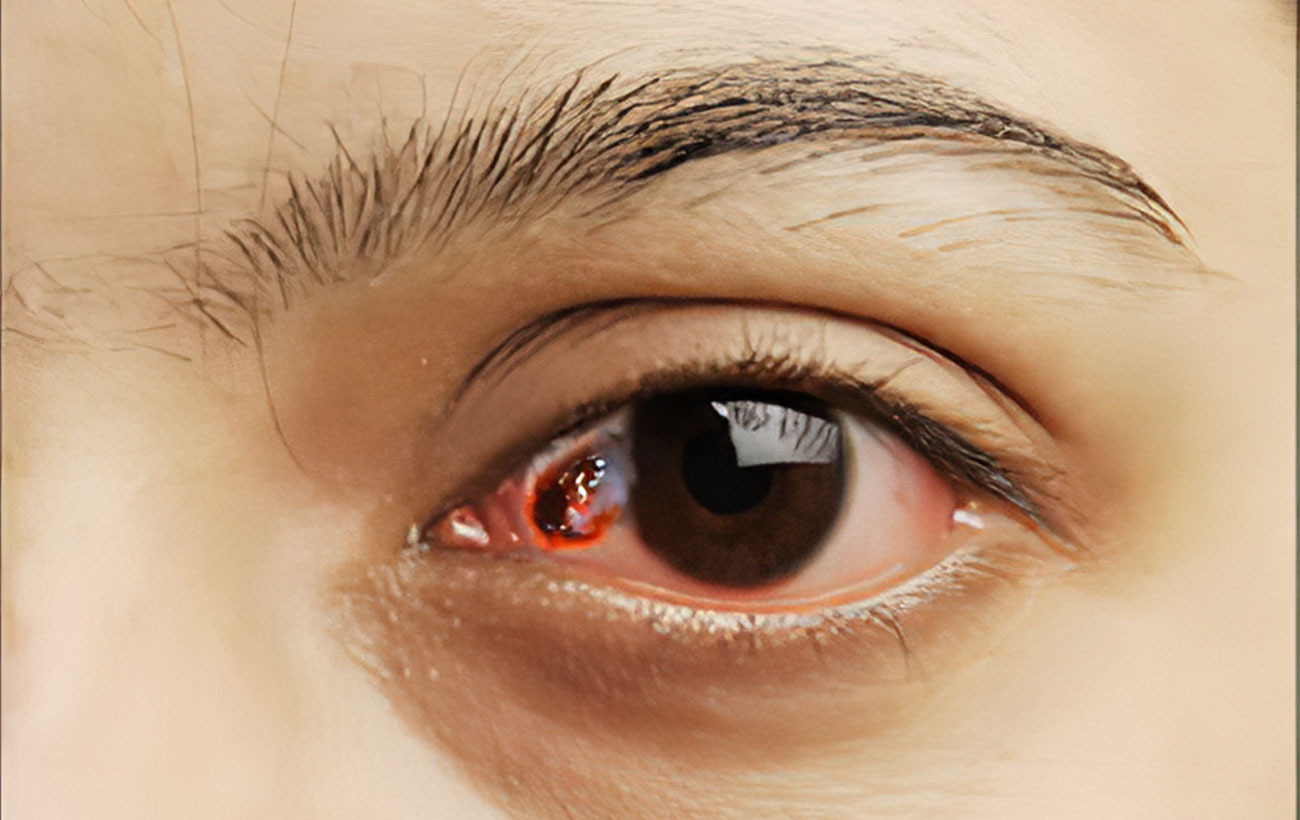Color vision deficiency (also called color blindness) is a vision disorder in which a person…

Macular degeneration is a disease characterized by irreversible deterioration of the light-sensitive cells of the macula—the part of the retina (the light-sensitive membrane lining the back of the eye) that provides sharp focus in the center of the field of vision. The retina transforms light into electrical signals that travel along the optic nerve to the brain, which perceives them as visual images. Sharp central vision allows you to see fine details clearly, which is essential for such everyday activities as reading, driving, and recognizing colors and faces. As you age, the macula can deteriorate. This process can occur rapidly, or it can be slow and progressive. Macular degeneration often affects both eyes, one after the other.
There are two main forms of age-related macular degeneration—dry and wet. About 90 percent of people who have the disease have the dry form, in which the macula breaks down slowly, gradually resulting in blurred central vision. The other 10 percent have the wet form, which progresses more rapidly and carries a greater risk of vision loss. In the wet form, fragile, abnormal blood vessels grow under the retina and bleed and leak fluid, causing internal scarring and formation of a large blind spot in the center of the field of vision. Some hereditary forms of macular degeneration can affect children and adolescents. These forms of the disease are rare and can be referred to collectively as juvenile macular degeneration or dystrophy.
Macular Degeneration Treatments
There is no cure for either form of age-related macular degeneration. Although there is currently no proven treatment for dry macular degeneration, this does not mean that you will lose your sight, because the disease progresses very slowly. The doctor may prescribe a supplement containing antioxidants and zinc and recommend changes in your diet that may help protect your eyes from additional damage and help slow the progression of the disease. Eat lots of fruits and vegetables, which are rich in antioxidants. Two antioxidants, lutein and zeaxanthin (which make up the pigment in the macula), are naturally protective of the macula.
Wearing sunglasses that block ultraviolet rays and sun visors may help prevent damage to the macula. Try vision aids such as magnifying glasses, bright lights, large-print reading materials, special lenses, and computer monitors with large print.




